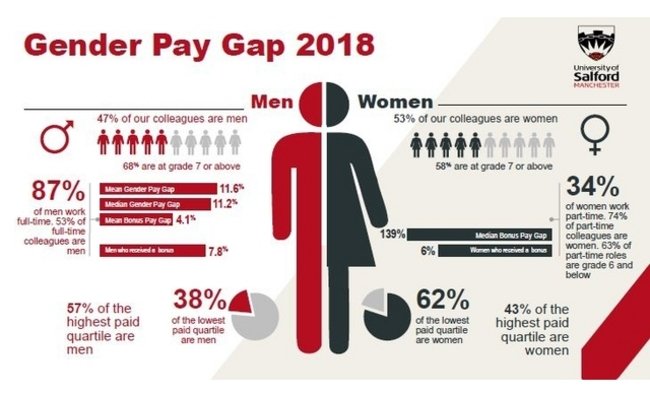
On the verge of the second decade of the 21st century, unfortunately, there is still a long way to go, to balance the payment between genders. The gender pay gap or gender wage gap is the average difference between the remuneration for men and women who are working. Women are generally paid less than men. But according to a recent research actualy women are also contributing to the situation, by not being more assertive about their rights.
Research conducted by DrivenWoman, a female only empowerment platform and network, reveals that more than two thirds of women believe they are contributing to the gender pay gap.
DrivenWoman is an empowerment group that helps women define their own success, create positive habits and put plans into action, one small step at a time. Founder of Driven Woman and chief doer, Miisa Mink previously worked as a brand consultant helping some of the world’s biggest companies with their branding. The network, which was established in 2013, helps women find their inner drive, provide accountability and support ambitious women reach their goals. With memberships (either in-person or online), online programmes, coaching platform and events, DrivenWoman has helped thousands of women aged between 25-50 years old in the UK and globally.
The research also reveals the reasons why women feel they actively contribute to the gender pay gap including: not believing in their own self-worth (45%), not negotiating higher salaries (45%) and not putting themselves forward for promotions (34%).A staggering 98% of women think they could be doing more to end gender pay inequality
In the UK, a quarter of companies and public sector bodies have a pay gap of more than twenty per cent in favour of men. The results of DrivenWoman’s study reveal that a staggering 98% of women feel they themselves could be doing more to end pay inequality. Over a third of women think that not believing in their own self-worth is preventing the pay gap from shrinking, and forty-five per cent think that not negotiating higher salaries contributes directly to pay inequality.
Other factors that women believe contribute to the gender pay gap include not putting themselves forward for promotions (34%), not proactively working to change corporate structures (21%), not taking action on their own ideas (23%) and not taking full responsibility for their personal growth (17%). One respondent describes the pay gap as the ‘mother penalty’ and another believes women are being ‘too compliant by adhering to old subservient stereotypes’.
To help empower women to take control and eradicate gender pay disparity by themselves, DrivenWoman is launching their new coaching initiative as part of their membership package. Members will receive a monthly two-hour video session from leading coach experts that will provide exercises, actionable steps and accountability for women to end the gender pay gap.

Founder of DrivenWoman, Miisa Mink:
“It doesn’t surprise me that women believe they contribute to the gender pay gap, because to a certain extent, we do. We are tolerating it. Women shouldn’t sit there in a victim position, waiting for the world to change for them. We need to take control.
At DrivenWoman we want to empower women to take that control by providing them with the skills and support to do so. That’s why we’re launching our new coaching initiative that will help women take actionable steps towards destroying the gender pay gap together.”
The research was conducted by Censuswide with 1,000 women in the UK. Fieldwork was carried out between 02.09.2019 – 05.09.2019. Censuswide abide by and employ members of the Market Research Society. All survey panellists are double opted in (with an opt-in and validation process) in line with MRS and ESOMAR standards.

Founder Dinis Guarda
IntelligentHQ Your New Business Network.
IntelligentHQ is a Business network and an expert source for finance, capital markets and intelligence for thousands of global business professionals, startups, and companies.
We exist at the point of intersection between technology, social media, finance and innovation.
IntelligentHQ leverages innovation and scale of social digital technology, analytics, news, and distribution to create an unparalleled, full digital medium and social business networks spectrum.
IntelligentHQ is working hard, to become a trusted, and indispensable source of business news and analytics, within financial services and its associated supply chains and ecosystems





























